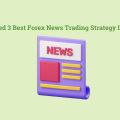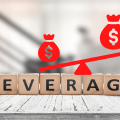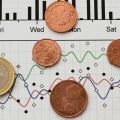Comparison between forex and commodity trading

The primary distinction between these two markets is the significant differences in the products traded in the forex and commodity markets. Both foreign exchange rates and commodities can be traded as futures contracts on a futures exchange. However, commodity contracts cannot be traded on the foreign exchange market.
A commodities market trades in commodities like coffee and cocoa and mining products like gold and oil. Forex, commonly known as FX, is a global market that trades in currencies such as the dollar, the euro, and the yen.
Numerous methodologies and analyses of the two markets are comparable. Which market you choose depends heavily on your level of familiarity with the following elements.
Key Takeaways
-
On a futures exchange, both forex and commodities can be traded. However, commodities are not traded on the forex market.
-
Commodity trading is heavily regulated, whereas forex trading is somewhat less so.
-
When trading, both groups employ leverage, although forex traders use significantly more than commodities traders.
-
Since forex transactions are handled over the counter, exchange limits do not apply to forex transactions.
-
You can trade commodity-based currencies if you wish to participate in both markets.
Commodity Trading
There are approximately fifty well-known commodity markets in the world today. These markets support the trading of around one hundred different primary commodities. The commodities traded on the market can be loosely classified into four groups: energy, agricultural products, metals, and bullion.
Energy includes natural gas, crude oil, gasoline, and heating oil. The prices of these goods are impacted by economic trends and the supply of oil from the world's largest oil wells. Investors should monitor OPEC, alternative energy, and economic risks.
Agricultural products such as sugar, cotton, coffee, cocoa, soybeans, black pepper, castor seeds, and cardamom are among those in which traders invest. Gold, silver, and platinum are examples of bullion. Copper, lead, zinc, and nickel are additionally traded on the commodities market.
There are other ways to invest in a commodity, but buying a futures contract is the most direct. This is a contract that obligates the holder to sell or purchase a specific commodity at a specified price and delivery date in the future. There are three essential participants in commodity trading.
Commercials or Hedgers are entities involved in the processing, production, or distribution of a commodity. For instance, maize growers act as advertisements for the commodity of corn. Most commodity trading involves commercial transactions.
Large Speculators: These are a group of investors that have pooled their funds in order to reduce their risk and maximize their profit. Similar to mutual funds, these enormous speculators are aided in their investing decisions by money managers.
Small Speculators Small speculators are individual commodity traders who trade through a commodity broker or their own accounts. Both large and small speculators have the capacity to have a significant impact on the commodities market.
Benefits of Trading Commodities
-
Commodities are excellent portfolio diversification choices, which is one of the advantages of trading in commodities.
-
Investors have access to international markets.
-
The longer market hours for commodities provide for additional trading time.
-
Most commodities exhibit observable seasonal patterns.
-
Commodities can be traded with a slightly greater degree of leverage than certain securities.
-
Other securities have higher transaction costs than commodities.
-
Commodities can facilitate profitable carry trades.
Disadvantages of Commodity Trading
-
Even though commodities provide portfolio diversification, their propensity to belong to a small number of concentrated businesses hinders the diversification of assets as a whole.
-
Commodity prices are very volatile, posing the danger of significant price fluctuations.
-
Historically, increased volatility has resulted in lower long-term returns for commodities relative to stocks. Greater leverage increases speculators' exposure to risk.
What is forex trading?
Forex, often known as foreign exchange, is a network of buyers and sellers who exchange currency at an agreed-upon price. It is the technique by which individuals, corporations, and central banks convert one currency into another; if you have traveled internationally, you have likely engaged in forex transactions.
While some foreign exchange is conducted for practical reasons, the great majority of currency conversions are conducted to generate a profit. The daily volume of currency conversions can make the price fluctuations of certain currencies exceedingly turbulent. This volatility is what makes forex so enticing to traders, as it increases the possibility of huge rewards while increasing the risk.
Advantages of Forex Trading
-
Currency trade Options in the Global Financial Market
-
It's Suitable for Novices
-
Low Capital Obstacles
-
No Commissions on the Majority of Accounts
-
High Volume Market
-
Market volatility on the Forex
-
Potential for Hedging
-
You Might Trade 24 Hours Per Day Suits Diverse trading Models
-
Convenient Trading Technology No predetermined lot size Well-Regulated
-
No central exchange exists.
The transaction costs are low.
Forex Trading Disadvantages
-
Insufficient Transparency Decentralized technology supports the Forex market. Thus, FX lacks transparency due to the following important factors.
-
Counterparty Dangers Since foreign exchange is a global market; it is challenging to comprehend the rapid changes and varied rules in each country. Forex trading may contain rules designed to safeguard investors and traders, but there is still the possibility that someone may breach the contract.
-
Operational Dangers The Forex market operates nonstop around the clock. Traders cannot watch everyday fluctuations. Therefore, they employ algorithms to safeguard their interests and assets. Therefore, they must be regularly informed of how the technology operates; otherwise, they may incur significant losses overnight and on weekends.
-
Leverage Risks. Forex provides traders tremendous leverage. All of a novice investor's capital could be lost in a matter of minutes if he or she is unaware of the dangers concealed by this investment tool.
In the end, in summary, a commodities market is a place where goods and mining products such as gold and oil are traded. Examples of commodities include coffee and cocoa. Forex, also known as the foreign exchange market, is a global market where various currencies, such as the dollar.
Other articles and publications:
Articles and publications of other companies:
- +1 (1707) 914-591
- 159, Hazi Ismail Road , Banorgati, Sonadangha, Khulna
- sowdream.com/


![Best Forex Broker of 2022: [REVIEWED]](http://f1.biznet-us.com/u_dirs/309/309507/p/c500b0da0ec040c4e183542cb84b8f43.png)








